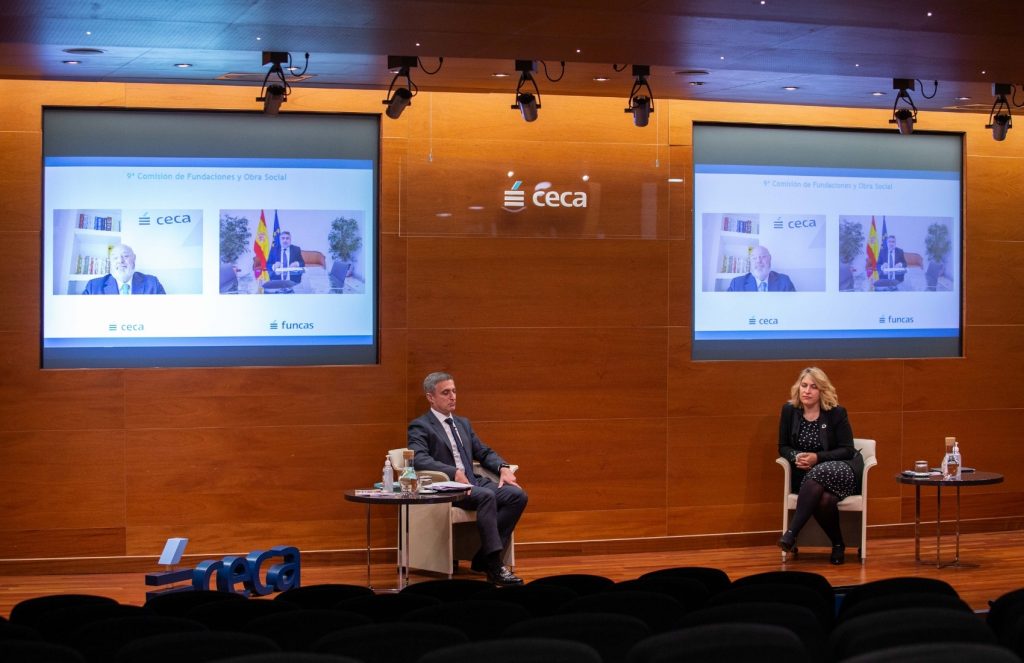Investment in Obra Social by CECA's member entities totalled €772 million in 2020. This endowment has enabled the implementation of 49,000 activities, which have benefited more than 24 million people
In a year marked by the COVID-19 crisis, CECA's Obra Social has played a vital role as the backbone of society, mitigating the economic and social impact of the pandemic
CECA today held the Foundations and Obra Social Committee, an annual meeting that brings together foundations affiliated to the association and advises the Board of Directors on social projects implemented by Obra Social. The event featured a detailed explanation of the 2020 annual report, which includes the main figures and activities implemented by CECA's member entities through Obra Social during the past year. The event was closed by the Minister of Culture and Sport, José Manuel Rodríguez Uribes, who was introduced by José María Méndez, CEO of CECA.
The Minister of Culture and Sport, José Manuel Rodríguez Uribes, praised the "much-needed" work carried out by CECA's Obra Social "in the fields of Culture and Heritage, Sport and Leisure, Education and Research, the Environment, and Local Development and Job Creation, throughout Spain", and highlighted the fact that in 2020 it managed to "mobilise more than €770 million for Obra y Acción Social initiatives."
The conference highlighted the fact that CECA's Obra Social is at the forefront of private social investment in Spain, one of the main ways of contributing to development and equal opportunities for the most vulnerable groups.
Taking into account the particularities of 2020, a year marked by the pandemic, the increase in investment in Obra Social from 2014 to 2020 is 8.75%, reaching €772 million, in a demonstration of the commitment to society. This endowment has enabled the implementation of some 49,000 activities, which have benefited a total of 24,688,140 people.
In 2020, Acción Social accounted for the highest percentage of investment, with 42.36%. A total of €327 million has been earmarked for programmes such as food banks and soup kitchens. In second place is Education and Research, which, with an investment of €209 million, has reached more than 8.7 million beneficiaries, developing more than 350 research projects focused on COVID-19. The CECA sector has also invested more than €74 million in Local Development and Job Creation programmes in 2020 to tackle the health crisis, demonstrating the capillarity of banks in their territories.
Initiatives developed to mitigate the economic and social impact of the pandemic
The contribution of the CECA entities has been particularly relevant during the delicate context of the pandemic. Since the onset of the health crisis, the initiatives developed have continued to diversify their work, addressing different areas. Among other areas, the aid has been earmarked for the supply of food banks, the extension of lunchroom grants, the fight against child poverty, research, the promotion of local development and job creation, welfare support for groups at risk of social exclusion and the elderly, and measures to facilitate liquidity and financing.
These CECA entities have displayed their firm commitment to society and the most vulnerable groups, adapting their resources to the current needs, by digitalising their programmes or through the call for extraordinary aid in support of their territories. This capacity to overcome and adapt to change, together with the capillarity that characterises the sector, has enabled access to every corner of society in times of greatest need.









